Preparing for Surgery and Major Procedures
Your medical team will provide the highest quality care, in a comfortable environment, no matter how long your stay. We are always here to help, and we value your trust.
Please visit Pediatric Surgical Care for information on your child’s surgery and major procedures.
Please review the sections below, then click on the hospital where you are having your procedure with us for more specific hospital instructions.
Medication Safety
Please review the following list of medications. If you take any of these, your surgeon will give you special instructions about how to use them before your procedure. If you have not spoken to your surgeon about the medications you are on, please reach out to them immediately.
- Aspirin
- NSAIDs
- ibuprofen/Motrin/Advil
- naproxen/Aleve/Naprosyn
- Antiplatelet medications
- Plavix/clopidogrel
- Brillinta/ticagrelor
- Effient/prasugrel
- Cilostazol
- Blood thinners:
- Coumadin/warfarin
- Lovenox/heparin
- Eliquis/apixaban
- Xarelto/rivaroxaban
- Lixiana/Savaysa/edoxaban
- Pradaxa/dabigatran
- GLP-1 Receptor Agonists – for example
- Ozempic/Rybelsus/Wegovy/semaglutide
- Victoza/liraglutide
- Trulicity/dulaglutide
- Byetta/exanetide
- Zepbound/tirzepatide)
- SGLT-2 Inhibitors – for example
- Jardiance/empagliflozin
- Farxiga/dapagliflozin
- Invokana/canagliflozin
- Steglatro/ertugliflozin
- Brenzavvy/bexagliflozin)
- Naltrexone/Vivitrol
- Some herbal supplements
If you are on any other medications, you may need to follow special instructions for those as well. Please be sure your surgeon is aware of all the medications you take, including over-thecounter medications and supplements. This is an important part of safely preparing you for your procedure
The Day Before Your Procedure
When you arrive for your procedure, please go to the registration location for your procedure.
What to Bring:
- Government-issued ID (e.g., driver’s license, passport, New York State ID)
- Health insurance card
- Prescription card and pharmacy contact details
- Physician referrals if requested
- Health care proxy information, if applicable (consult your care team)
- Wear glasses as we do not have the supplies to provide contact lens care
- Dress in comfortable, easy-to-remove clothing
- List of current medications including dosing
If staying overnight, please bring any personal items you would like to have with you. Please do not bring valuables like jewelry, watches, or cash.
When to Stop eating and drinking before your procedure:
Your surgery team will tell you when to arrive for your procedure. You must stop eating food and drinking non-clear liquids at least eight hours before your arrival time. Please stop drinking all liquids two hours before you are asked to arrive at the hospital. The timing of when to stop eating and drinking before your procedure is very important. Correctly following these instructions will ensure you are safe to have your procedure as scheduled.
IMPORTANT: If you have a disease affecting your digestive tract (example: esophagus, stomach, intestines, colon or rectum) or are taking GLP-1 medications (example: Ozempic, Wegovy) please ask your surgeon for your specialized instructions as the timing requirements may be different for you.
For most patients:
On the morning of your surgery, you can drink up to 12 ounces of clear liquids, but be sure to stop drinking all liquid two hours before you are asked to arrive at the hospital. We encourage you to drink electrolyte or carbohydrate-containing clear liquids, such as Gatorade or Powerade (see list below). If you have diabetes, please choose a sugar-free option (such as Gatorade G2 or Powerade Zero).
Clear Fluids include:
- Water
- Tea or Black Coffee WITHOUT milk or cream (sweeteners may be used)
- Clear broth
- Carbonated beverages
- Clear fruit juices (no pulp)
- Clear electrolyte and carbohydrate-containing beverages (e.g. Pedialyte, Gatorade, Gatorade G2, Powerade, Powerade Zero, Ensure Pre-surgery, ClearFast Preop or similar)
- Jell-O (without solid elements)
COVID-19 Related Preparations
We have taken many steps to reduce the spread of COVID-19 since the pandemic began. Please review our COVID-19 facts and resources. We are keeping patients and staff safe by:
- Continually disinfecting all areas and frequently touched surfaces
- Screening patients for COVID-19 symptoms
- Testing our staff when exposed to COVID-19
- Implementing strict isolation practices to separate COVID-19 patients from others
COVID-19 Screening and Testing before Procedures
We want to perform your procedure under the safest possible circumstances, to give you the best chance of a healthy recovery. It is possible to have COVID-19 even without experiencing any symptoms. Your doctor will talk to you about whether you need to be tested for COVID-19 before your procedure. Our staff will also screen you for COVID-19 symptoms when you arrive for the procedure. Please be aware that screening requirements change periodically. Please check our latest screening information.
Avoiding COVID-19
The best way to prevent complications from COVID-19 is to get vaccinated, including the booster once you are eligible. It is also critical that you take the following precautions whenever possible in the 14 days before and after your procedure:
- Inform your doctor immediately if you:
- Have any contact with someone who has or may have COVID-19, or with a person who has symptoms of COVID-19
- Develop any symptoms of COVID-19, or get a positive test result for COVID-19. Symptoms include: cough, fever (>100F), shortness of breath, body aches, chills, general fatigue, new loss of sense of taste or smell, sore throat, congestion or runny nose, nausea or vomiting, and diarrhea.
- Avoid any close contact with people who are sick with COVID-19 symptoms.
- Wash or sanitize your hands frequently, for at least 20 seconds each time, especially before and after eating, touching the face or nose, and putting on and taking off face masks or coverings.
- Remind people caring for you to wash their hands (for example, before changing surgical dressing).
- Clean high-touch surfaces frequently (for example, doorknobs and bathrooms).
Role of Family/Caregiver in Keeping You Safe
The actions and behaviors of those closest to you are especially critical right before and after your procedure. They should focus on hand hygiene, social distancing, wearing a mask when outside the home, and avoiding contact with anyone who might be sick with COVID-19. If they have any symptoms of COVID-19, they should isolate and get medical care.
Traveling Before Your Procedure
Please contact your doctor’s office to discuss any needed travel before your procedure.
Escort Requirements
If you are going home directly after your procedure, you must arrange for an escort to accompany you home when you leave the hospital. An escort is an adult who is at least 18 years old and can safely take you home from the hospital and who can call for assistance if you need additional help.
If you do not have an escort to take you home after surgery, you may be asked to reschedule your surgery or stay in the hospital for a longer time so we can keep you safe.
Visitor Policy
Please carefully review our visitor policy. Visitors may not be present in the operating or recovery room, except for childbirth, pediatrics, and patients with an intellectual, developmental, or other cognitive disability. Please give the admitting nurse the name and phone number of someone to contact with information about your status and progress.
Financial Planning
Please address any questions related to hospital charges for your procedure to Hospital Financial Screening (212-731-3600). You can direct any questions related to your anesthesia bill by calling our anesthesia billing providers (800-627-4470).
My Mount Sinai App: Makes Managing Your Health Care Easier
MyMountSinai® is your online gateway to Mount Sinai physicians and services, as well as all of your medical records. The app helps you take care of your health care needs on the go and communicate easily with your medical team.
Please see the hospital links below for specific information on how to prepare for the day of your procedure and the process for going home.

Mount Sinai Brooklyn
3201 Kings Highway(between E 32nd Street and New York Avenue)
Brooklyn, NY 11234
View Map
General Phone: 718-252-3000718-252-3000 or 718-312-7300718-312-7300
Learn More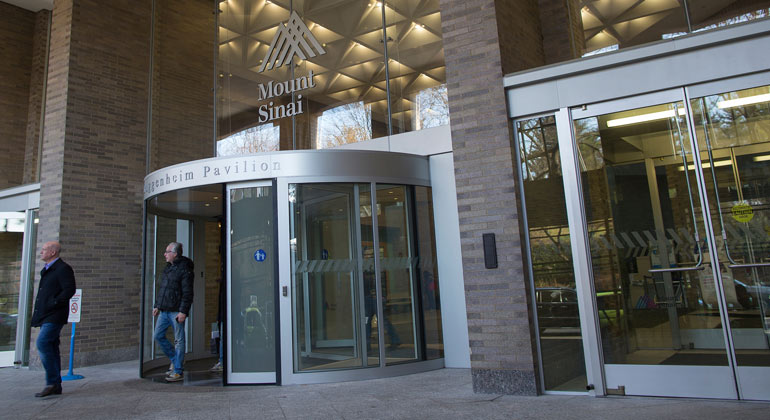
The Mount Sinai Hospital
1 Gustave L. Levy Place(between 98th and 101st Streets)
New York, NY 10029-6574
View Map
General Phone: 212-241-6500212-241-6500 or 212-590-3300212-590-3300
Learn More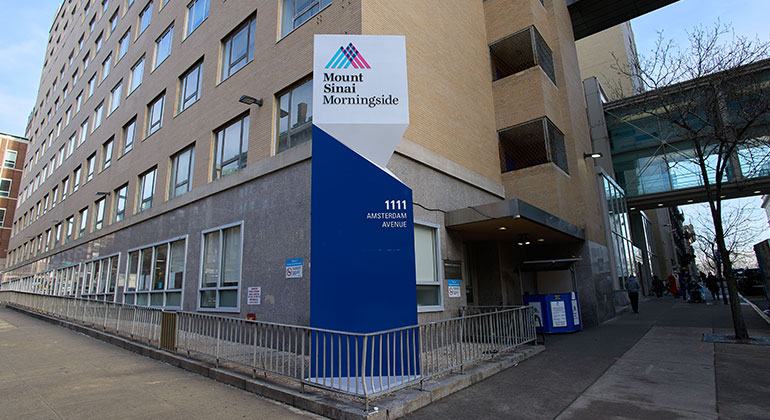
Mount Sinai Morningside
419 West 114th Street(between Morningside Drive and Amsterdam Avenue)
New York, NY 10025
View Map
General Phone: 212-523-4000212-523-4000 or 212-857-9990212-857-9990
Learn More
Mount Sinai Queens
25-10 30th Avenue(between 29th Street and Crescent Street)
Astoria, NY 11102
View Map
General Phone: 718-932-1000718-932-1000 or 718-289-3100718-289-3100
Learn More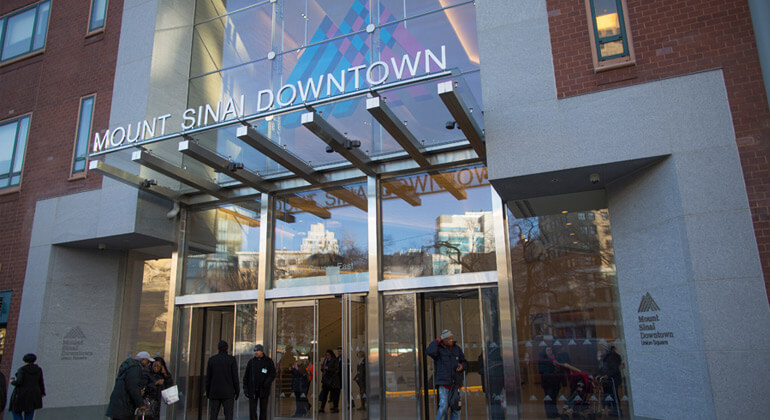
Mount Sinai Union-Square
10 Union Square East
(between E 14th and E 15th Streets)
New York, NY 10003
View Map
General Phone: 212-844-8250212-844-8250
Learn More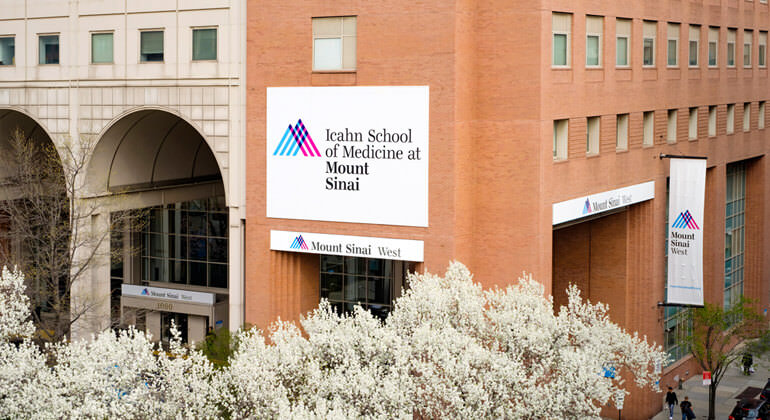
Mount Sinai West
1000 Tenth Avenue(between W 58th and W 59th Streets)
New York, NY 10019
View Map
General Phone: 212-523-4000212-523-4000 or 212-857-9990212-857-9990
Learn More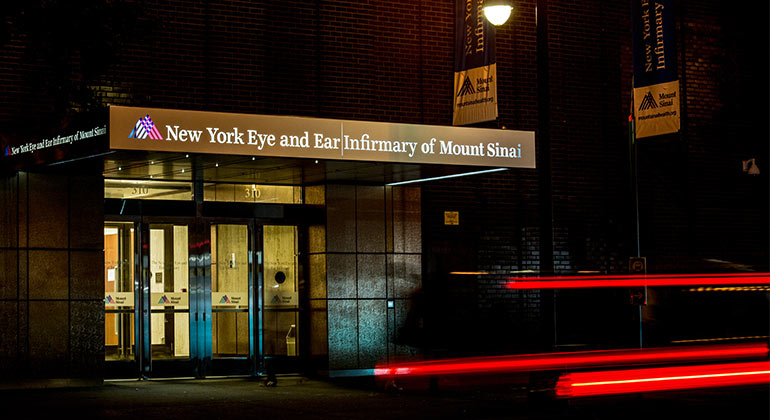
New York Eye and Ear Infirmary
310 East 14th Street(between 1st and 2nd Avenues)
New York, NY 10003
View Map
General Phone: 212-979-4000212-979-4000
Learn More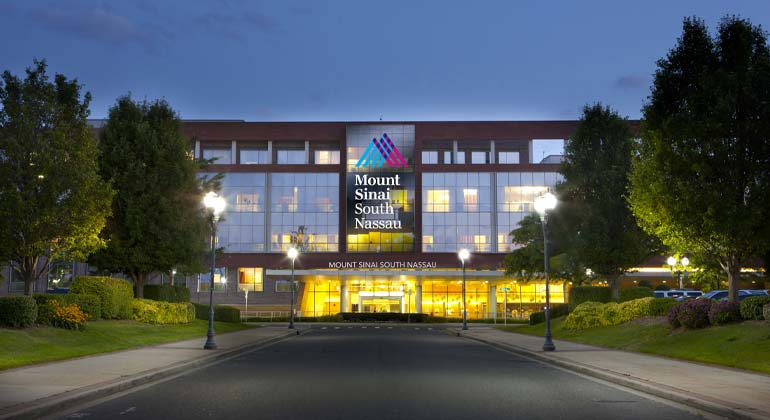
Mount Sinai South Nassau
One Healthy WayOceanside, NY 11572
View Map
General Phone: 877-768-8462
Learn More
Mount Sinai Kravis Children’s Hospital
1184 Fifth Avenue(between 98th and 101st Streets)
New York, NY 10029
View Map
Phone: 212-241-9500212-241-9500
Learn More